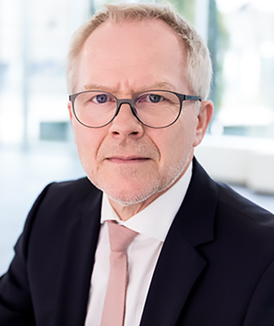VW Bank extinguishes emissions fallout to make solo return
After the damaging emissions scandal in 2015, Volkswagen came back fighting in 2017. This led to VW Bank, freshly separated from VW Financial Services, issuing a three-tranche deal that exceeded all expectations. David Wigan reports.
Few companies can take a €25bn hit after enduring a well-publicised scandal, and just two years later achieve a record performance. But Volkswagen can, and amid expectations for record car sales its financial services division in December said it expected to grow contracts by 8% in 2017, with profits significantly higher.
Two-thousand and seventeen also marked a committed return to the capital markets by the auto maker, after a low-profile period following a scandal in which the company admitted it had gamed emissions testing. Various units of the company made successful forays over the course of the year, finishing with Volkswagen Bank (VW Bank), which was newly separated from the firm’s financial division. It was the division’s first bond sale since 2014.
Breaking away
VW Bank completed its separation from VW Financial Services in September 2017, becoming a wholly owned subsidiary of Volkswagen AG. The decision to restructure was made to optimise capital efficiency, with the credit and deposit business remaining with the bank, and activities such as leasing and insurance assigned to financial services and away from capital requirements mandated by the European Central Bank (ECB). As a result, the bank and financial services divisions were no longer able to share funding resources, leaving the bank to proceed on its own.
Following the restructure, Moody's downgraded the bank’s long-term senior unsecured debt and issuer ratings by three notches to A3 from Aa3, citing a potential for higher losses from the remaining business and the gradual shift of funding profile towards secured issuance and deposits. Up to 2014 the bank’s strategy was to pursue a diverse range of funding sources, and it was determined to return to that approach and re-establish itself as a reliable issuer of senior unsecured debt.
“We do have several funding options and we were focused on deposits and securitisations of the auto loan business, which have also benefited from demand from the ECB’s asset purchase programme,” says Bernd Bode, head of group treasury and investor relations of VW Bank. “We had not issued senior bonds for three years; we were required to take time out and revisit our prospectus to reflect the impact of the crisis and the news flows around it, but the whole group printed more than €17bn of bonds in 2017, so we wanted to do at least one senior transaction of benchmark size.”
Race against time
With securities maturing in 2018 and the bank seeking to expand its business (the company sold a record 6.23 million vehicles in 2017) it was keen to get back into the capital markets before the end of the year. “We saw a nice window of opportunity right at the end of the year, and our bankers told us that there were still a lot of investors interested in another transaction, so we decided to go for it,” says Mr Bode.
VW Bank instructed a dealer group comprising Commerzbank, Deutsche Bank, RBC Capital Markets and Banco Santander to line up a three-tranche deal, comprising a floating rate note maturing in 3.5 years, and two fixed-rate bonds maturing in 5.5 years and eight years. The tenors reflected the bank’s medium-term business model, in which customers stay on its books for an average of four or five years. The company did not do a roadshow, instead relying on its programme of annual investor events and calls.
“We try to match our maturity profile to the auto finance business, but also we wanted to ensure we provided investors with tenors and yields that made sense, and to optimise on that level as well,” says Mr Bode. The aim, as books opened on December 6, was to raise a minimum of €1bn across the three tranches and to take it from there.
Orders flowed in over the course of a few hours, and before midday the book size reached €7.3bn, well beyond the bank’s expectations. Given the higher levels of demand, bankers were able to tighten up on price talk and the bank finally printed €2bn of bonds, assigning €750m to the floater, €750m to the 5.5-year tenor and €500m to the eight-year bucket. The short-maturity bond was priced at Euribor plus 42 basis points (bps), while the 5.5 year printed at mid-swaps plus 52 bps and the eight-year at mid-swaps plus 80 bps. Pricing was inside the issuer's existing curve, suggesting investors were willing to overlook VW’s misdemeanours and were keen buyers of its paper.
Among investors, asset managers were the largest investor group, accounting for about 80% of buyers. The bonds were predominantly sold in Europe, with about one-third going to buyers in the UK and Ireland, about 30% in Germany and Austria, and about 17% in France.
“There was no punishment after the emissions scandal, and all things being equal we priced at around the same level as before the crisis,” says Mr Bode. “In any event, the volume was a nice surprise and we were very happy.” After its successful return, VW Bank plans more issuance through 2018. Normal service is resumed.



